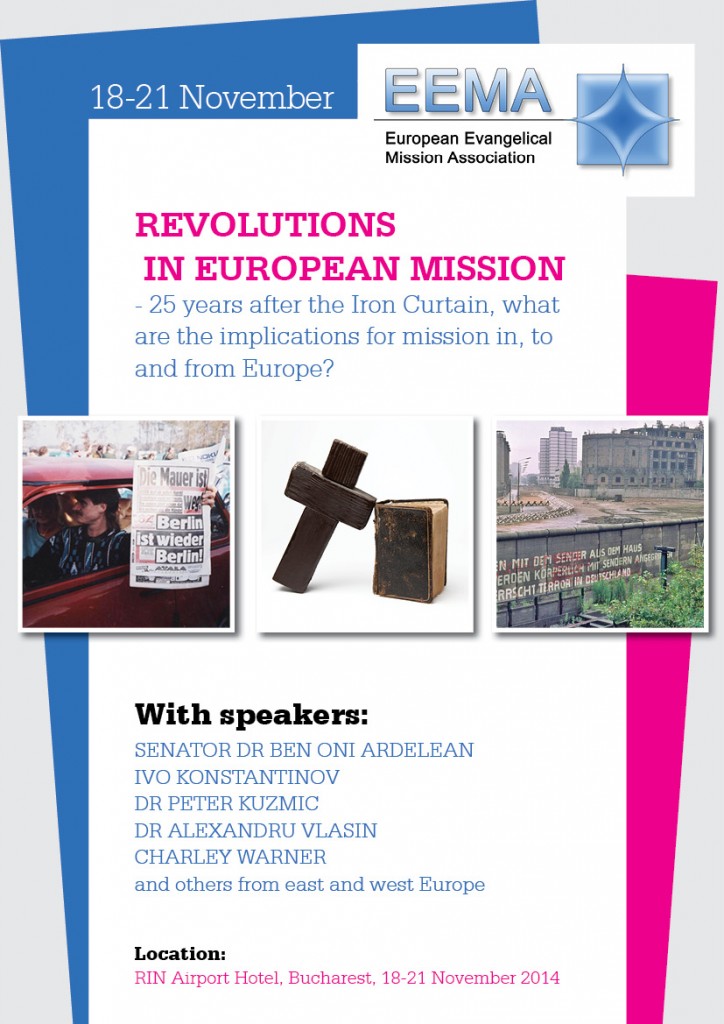Christian Vögeli is one of the students of the first MTh in Missiology (MATHEM) program at KRE-CIMS, offered in cooperation with the University of South Africa (UNISA). He is from Switzerland but has been living in Albania for more than 20 years. His love for Albanians started in 1991 after meeting thousands of Albanian refugees in a mission trip to South Italy. God has been using Christian for great things: as a fruit of his work the first Albanian Bible translation was published in 1994. After completing and publishing the Albanian Bible, Christian has developed a twofold ministry in Albania. On one side he is working in supporting the church, on the other hand he has set up a development agency to help in crucial social issues. They see the need for better health-care, social care and life-long education. Presently they are working on establishing an rescue service network, which does not exist in Albania.
Sharing about his ministry, Christian admitted: „I have been reevaluating the understanding of mission and evangelism for the last 10 years. We do not do social work to buy people for conversion. Instead, everything we do in health care and social care and in education is the fruit of the love we have for people. We try to improve the health system, to improve education to give the children a future by developing their talents, and providing opportunities for life-long learning. Whatever I do, I do it without a hidden strategy behind. I have to do it, because I love them.”
Christian Vögeli heard about the MATHEM program at a Consultation for the European partners of the Reformed Mission League (GZB) in Budapest. There he met Dr. Anne-Marie Kool, who was hosting the conference. „We understood what was going on in each other’s mind. I felt this is the time for a program.” Christian sees it as a gift from the Lord that he can study in the MATHEM program. „With my application was l late so I prayed ’Lord please show me if this is the right time for my application.’ And the door was opoened, my application to the course has been accepted.”
For Christian the program is more than a mere study course. „My aim is not only to study or to do research but that my studies have an impact not only in my own life but also in the context where I live. One of my aims with the MATHEM program is to help me to reshape my thinking on mission. Before the program I had more then ten years of brainstorming on mission thinking about questions such as: What is the role of the home church? Are newly planted churches in the mission field depending from so-called sending churches? How should mission be in the context of today's society? How to interact with non Christians? Should churches be involved in social actions and if yes, how? What is mission all about. Often I could recognize that people from the Western world, including myself, have a certain mentality in thinking that we have the solution for everything. But during years in mission I learned that all people are cooking with water. Much more I understood that I can learn a lot from my dear Albanian friends and often they are doing much better than I do...”
As a result of the MATHEM program Christian has found out that he was not alone with his huge questions. Other people have also struggled and deeply thought about these issues and have gone further with some proposals. He admitted: „By studying in the MATHEM program I am developing a synthesis of experiences in mission and knowledge, and it helps me to understand and evaluate what my mission has been so far.”
For Christian the distant learning setup of the course is challenging, since he has had lot of challenges in his context, which made him reorganize his time. However the intensive consultation weeks are very precious for him. „Without these intensive weeks it would not be possible for me to complete the course.” (Interviewed by Rev. Zoltán Ruzsa-Nagy, staff member CIMS)
For the MATHEM brochure see: http://www.scribd.com/doc/84123442/MATHEM-Brochure-2012-final






